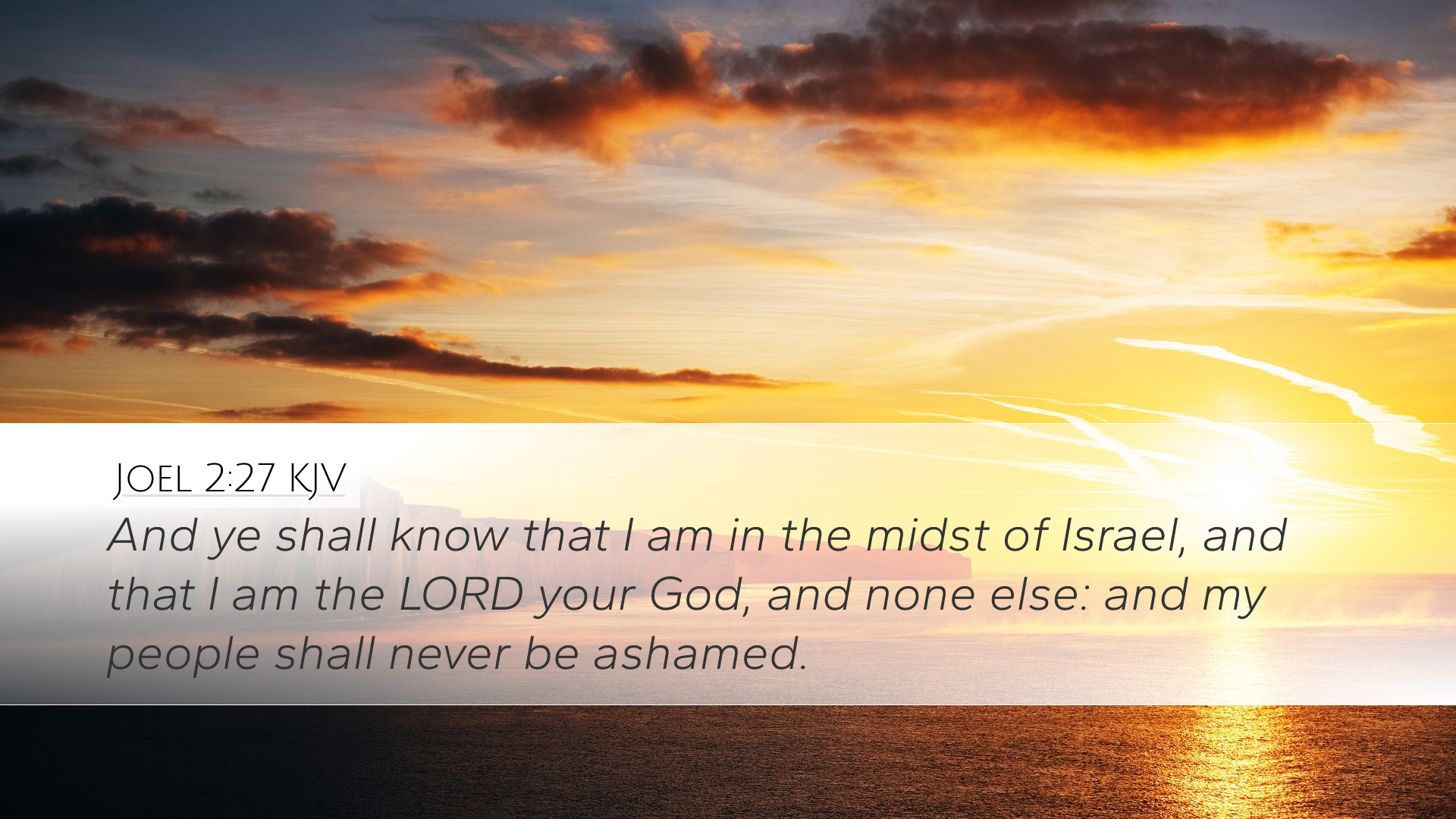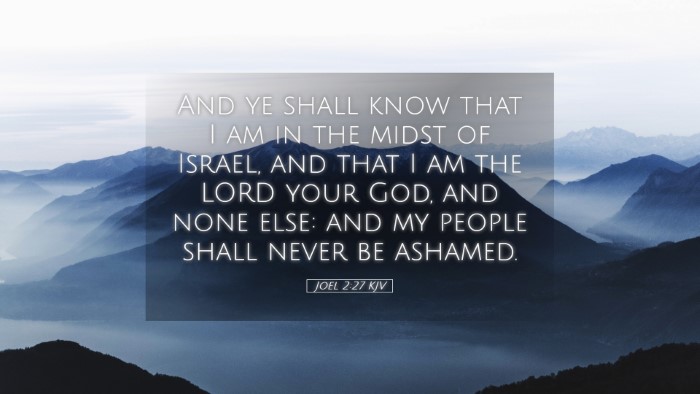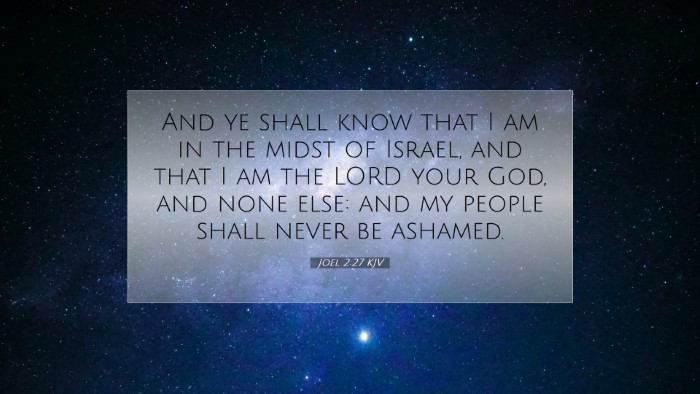Commentary on Joel 2:27
Verse: "And ye shall know that I am in the midst of Israel, and that I am the Lord your God, and none else: and my people shall never be ashamed."
Introduction
This verse from the book of Joel encapsulates the theme of divine presence and reassurance amid suffering and societal crises. It reflects God's commitment to His people and serves as a promise of restoration and affirming their identity as His chosen ones. This commentary seeks to explore the depths of this verse utilizing insights from prominent public domain commentaries, particularly those by Matthew Henry, Albert Barnes, and Adam Clarke.
The Context of Joel 2
Joel prophesies during a time of extraordinary calamity resulting from locust invasions, which symbolized impending judgment upon Israel for their transgressions. Chapter 2 particularly emphasizes repentance and God's desire for restoration. The assurance in verse 27 highlights a crucial turning point where God reassures His people of His presence and sovereignty.
1. Divine Presence
God proclaims through Joel that He is "in the midst of Israel." This statement serves multiple purposes:
- Affirmation of God’s Nearness: The presence of God signifies comfort and protection for His people, as noted by Albert Barnes. In times of trouble, the assurance of divine companionship is paramount for spiritual resilience.
- Divine Sovereignty: The phrase underscores God's active involvement in the affairs of His people and historical context. As Matthew Henry notes, Israel's history is interwoven with God's providential governance, which reinforces their identity as His chosen nation.
2. Identity and Assurance
The declaration, "I am the Lord your God, and none else," reinforces the unique relationship between God and Israel. This exclusiveness is significant:
- Theological Implication: Adam Clarke elaborates on the importance of recognizing God as the sole deity. This statement serves as a profound reminder against idolatry and syncretism, which plagued Israel historically.
- Encouragement Amid Shame: The promise that "my people shall never be ashamed" addresses the psychological and spiritual states of God’s people during adversities. Both Henry and Barnes emphasize that despite their circumstances, God provides a foundation of hope and identity, ensuring that His people can resultantly walk in confidence.
3. Theological Reflection
The verse evokes deeper reflections on God’s nature as it reveals the relationship between God and His chosen people:
- Restorative Intent: The assurance of God's presence is intricately tied to His desire to restore His people. As noted in the preceding verses within Joel 2, God's promise of restoration includes spiritual renewal and physical blessings.
- Hope and Restoration: The promise of identity and presence is transformative. Barnes mentions that such declarations encourage not just individual faith but communal identity. The relationship with God affirms their collective identity and mission.
Conclusion
Joel 2:27 is a profound encapsulation of God's relationship with Israel and resonates deeply with the understanding of God’s sovereignty, presence, and the identity of His people. As highlighted by the commentaries of Matthew Henry, Albert Barnes, and Adam Clarke, this passage serves not only as historical context but provides timeless reassurances to contemporary believers. It calls for spiritual reflection, encouraging a return to God's promise and the acknowledgment of His presence amid life's uncertainties.
Reflection Questions
- What does it mean to recognize God's presence amid current challenges in the church today?
- How can we encourage a communal understanding of identity as God’s chosen people within our congregations?
- In what ways might we combat shame through our recognition of God’s sovereignty in our lives?


